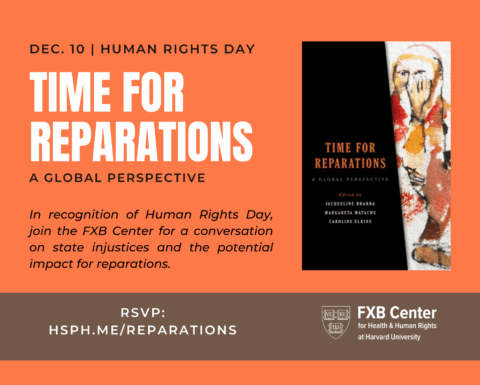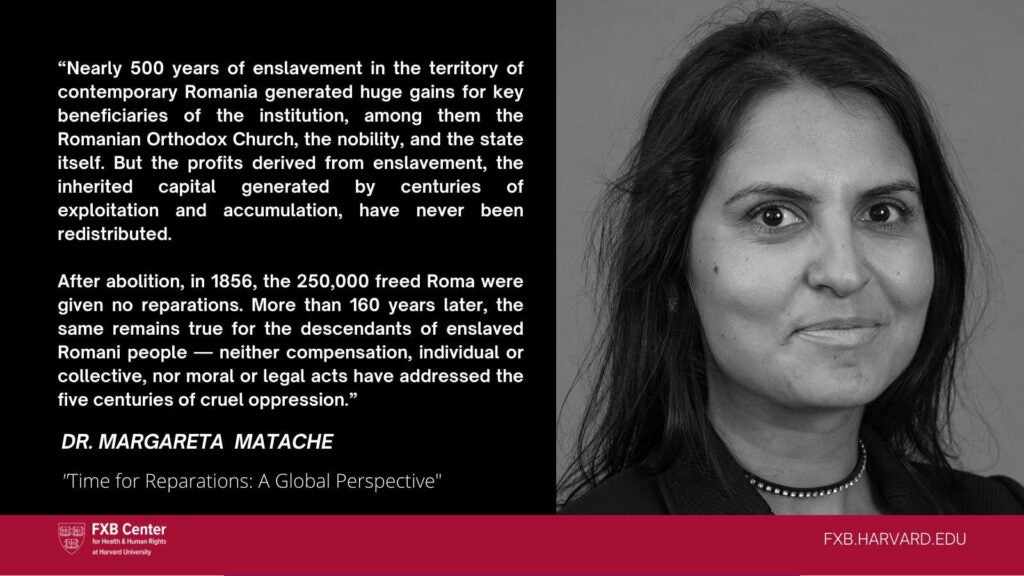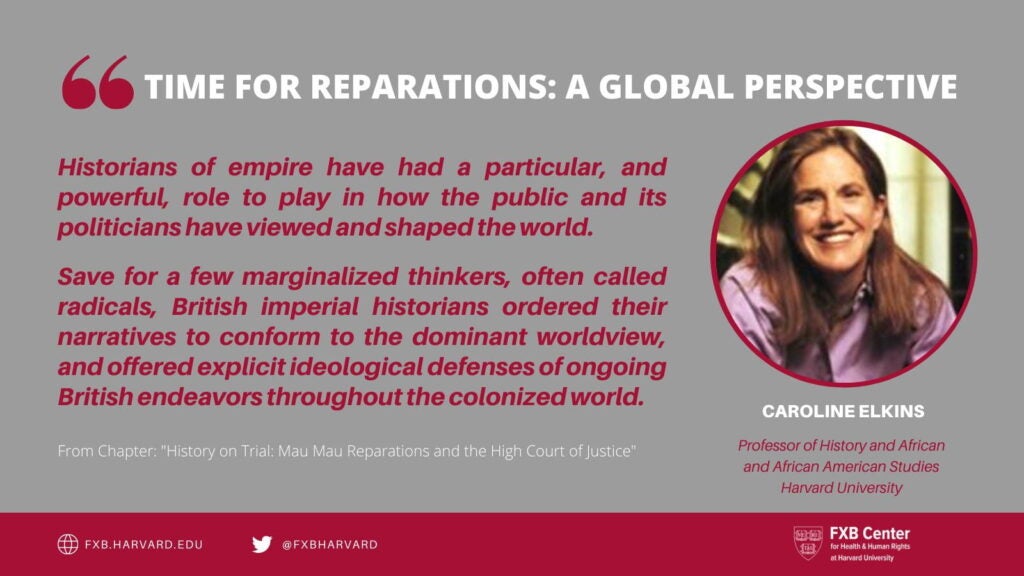International Human Rights Day: Time For Reparations

Date and Time
Event Description
On Friday, Dec. 10, International Human Rights Day, the FXB Center will host a conversation on “Time for Reparations: A Global Perspective.” The book includes case studies of state injustices from around the world—from slavery to forced sterilization to widespread atrocities—and interdisciplinary perspectives on the potential impact of reparations.
Event Recordings
Full event:
Albie Sachs’ speech:
Speakers

Event Agenda
9:00 a.m. EST – Welcome Remarks and Book Launch
- Welcome remarks | Natalia Linos, Acting Director, FXB Center
- Launching Time for Reparations | Jacqueline Bhabha, Director of Research, FXB Center
9:15 a.m. EST – Panel: Enduring Impact of Historical Injustice
- Chair | Caroline Elkins, Professor of History and African and African American Studies, Harvard University
- Panelist | Michael R. Fischbach, Professor of History, Randolph-Macon College
- Panelist | Mireille Fanon Mendes, Professor, Paris Descartes University
- Panelist | Nicole L. Immler, Associate Professor of History and Cultural Studies, University of Humanistic Studies in Utrecht
10:05 a.m. EST – Panel: Reparations in Practice
- Chair | Jacqueline Bhabha, Director of Research, FXB Center
- Panelist | Sir Hilary Beckles, Vice-Chancellor, University of the West Indies and Chairman, CARICOM Reparations Commission
- Panelist | Aileen Ford, Independent Researcher
- Panelist | Douglas Johnson, Lecturer in Public Policy, Harvard Kennedy School
- Panelist | Phuong Pham, Assistant Professor, Harvard Medical School and Harvard T.H. Chan School of Public Health
- Panelist | Patrick Vinck, Assistant Professor, Department of Global Health and Population, Harvard T.H. Chan School of Public Health
- Panelist | Luis Moreno Ocampo, Founding Chief Prosecutor of the International Criminal Court
10:55 a.m. EST – Panel: Outstanding Claims
- Chair | Margareta Matache, Instructor and Director of the Roma Program, FXB Center
- Panelist | Ian Hancock, OBE, Professor Emeritus, University of Texas at Austin
- Panelist | Bert Samuels, Attorney, Member of the Jamaican National Commission on Reparations
- Panelist | Alex DeWaal, Executive Director, World Peace Foundation; Research Professor, Fletcher School of Law and Diplomacy
- Panelist | Bridget K. Conley, Associate Professor and Research Director, World Peace Foundation
- Panelist | Susan Slyomovics, Distinguished Professor of Anthropology and Near Eastern Languages & Cultures, University of California, Los Angeles
11:45 a.m. EST – Conclusion
Albie Sachs, Former Constitutional Court Judge, major architect of the post-apartheid constitution of 1996
12:00 p.m. EST – Event Ends
Jacqueline Bhabha, Director of Research, FXB Center
Special Remarks




